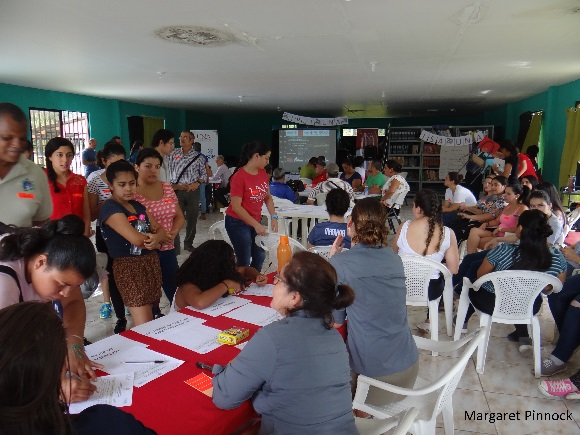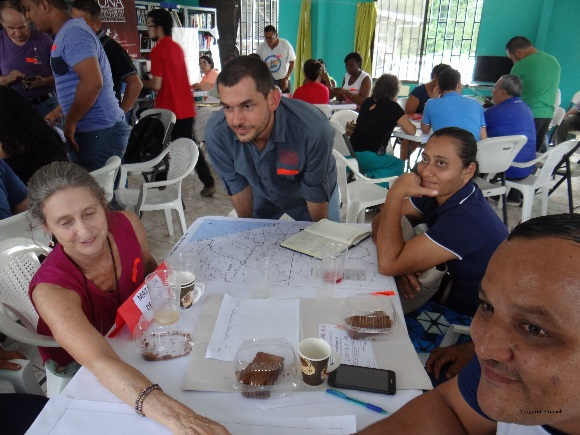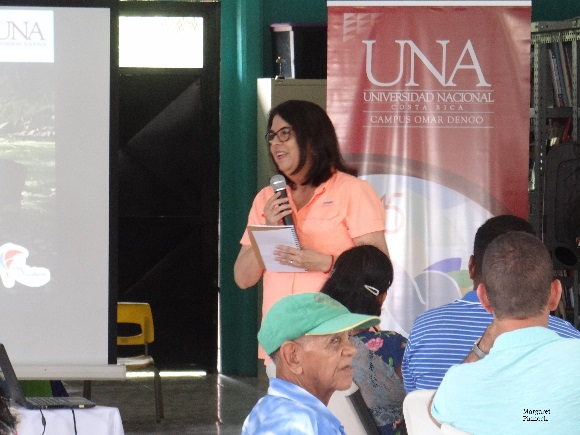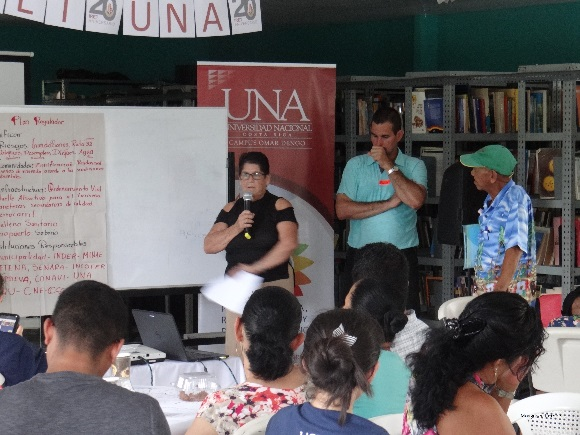On September 1st, 2018, the National University held the First Environment and Health Workshop in the Matina Canton as part of the IV Academic Encounter "UNA for the communities" organized by the Faculty of Earth and Sea Sciences (FCTM). This encounter was led by the Regional Institute of Studies on Toxic Substances (IRET), including the Infants and Environmental Health Program (ISA), along with the Cantonal Union of Integral Development Associations of Matina, the School of Geography, the Center for Research and Teaching in Education, and the Sarapiquí Campus.
During the workshop, the main results of studies conducted by the IRET related to the effects of pesticides on the environment and health were presented through a video.
|
What have been the achievements of the workshop?:
|


The meeting took place because the canton of Matina has many natural and cultural treasures, and it is also the canton that exports the largest number of bananas in Costa Rica. Despite the benefits of this production, being an important source of employment, among others, studies conducted by the National University indicate that the extensive use of pesticides (or agrochemicals) contaminates the environment and the people living in it.
Representatives from the integral development associations of the Canton, communal ASADAS, schools and colleges in the canton, COOPROTURIS R.L., local businesses, the Union of Agricultural Plantation Workers (SITRAP), as well as representatives from public institutions such as the Municipality of Matina, the Ministry of Public Education (MEP), the La Amistad Caribe Conservation Area of the National System of Conservation Areas (ACLAC-SINAC), Ministry of Agriculture (MAG), the Costa Rican Social Security Fund (CCSS), and Water and Sewers (AyA) participated in this workshop.


The activity began with remarks from the Vice-Rector of Extension, M.Ed. Yadira Cerdas Rivera, and the dedication of the workshop to Karla Mora Aparicio by the Vice-Dean of the FCTM, PhD. Jorge Herrera. This was followed by an ice-breaking activity led by students from CIDE. Once everyone got acquainted and relaxed, a video with the main results of the studies conducted by IRET was presented. This served as a segue into group work, with participants divided into working tables based on topics previously identified as important to address. These topics included:
- Aerial fumigations
- Ground pesticide application
- Fish kills
- Sustainable tourism
- Drinking water
- Regulatory plan
At these working tables, the main issues or situations to prioritize for finding solutions were identified. Afterward, desired changes, steps to be taken, and responsible parties for follow-up were indicated.
Once the tables discussed each topic, a representative from each table presented the ideas and solutions proposed, as well as what needed to be done to achieve them. At this point, it was observed that different communities shared many common problems and, in some cases, were unaware that neighboring communities shared these concerns. There was also a great interest among participants in initiating changes to improve the quality of life for the canton's inhabitants and to sustainably utilize its natural resources.
In the coming weeks, the National University will compile the information and generate a report to be validated by workshop participants and subsequently presented to the community and public entities.


